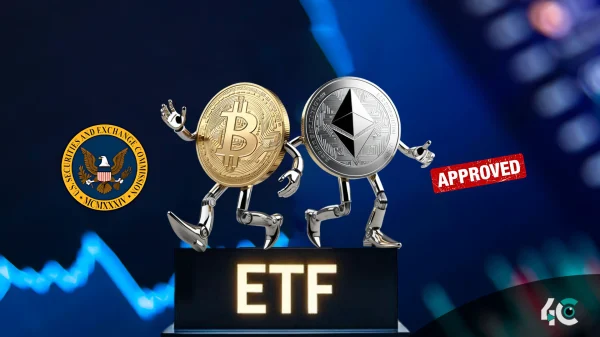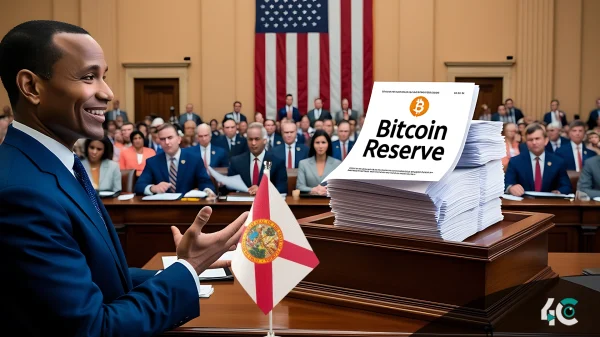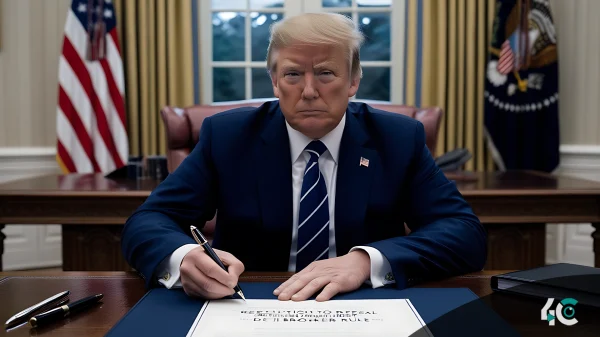Bitcoiners were right: Reasons to have faith in U.S. economic data are fading fast. Recent indicators, including a significant decline in the U.S. dollar and surging Treasury yields, have raised concerns about the reliability of traditional economic metrics. Analysts suggest that these developments may signal a shift in investor confidence towards alternative assets like Bitcoin.
Skepticism of Bitcoiners Goes Mainstream.
For many years, Bitcoin enthusiasts have grumbled about the economic statistics the U.S. government offers. Everything appears to be phony, including GDP figures, employment growth, and inflation. More and more people are questioning these numbers. Many government insiders are also speaking out against it.
Famous crypto influencer Anthony Pompliano has noted that early Bitcoin supporters see significant problems in the official figures. Pompliano said, “We began to notice discrepancies in the data.” Furthermore, we set ourselves appropriately. Given that bitcoin is doing well and conventional markets are losing their steam, the awareness appears to be accurate.
Furthermore, this doubt has even spread to the higher levels of the administration. In a moment of unprecedented transparency, a United States Treasury official expressed his doubts about the published economic numbers. Pompliano remarked, “You know it’s time to take a closer look when even the Treasury Secretary is doubting the figures.”
The Increasing Lack of Confidence in Official Figures.
Much of the doubt is based on inflation. Real Americans experience far from it at the grocery store, gas pump, and in housing, even while official papers suggest inflation is “under control.” This makes people skeptical of the accuracy of official statistics.
The national debt, on the other hand, is rising fast, and people are questioning the official figures. This development has eroded confidence in the U.S. dollar as a stable currency. There is only so much bitcoin. For this reason, professionals advise that it may be a wonderful choice to keep riches.
Pompliano believes this change is already in progress. He claimed that increasing numbers of people believe Bitcoin is a means to save their money should the system collapse. It’s not only being doubtful; it’s acting.
A worldwide movement gathers speed.
Different governments and organizations are seeing Bitcoin’s growing appeal. Countries like El Salvador have made Bitcoin legal tender. Some U.S. states, including Florida and Pennsylvania, are also thinking about more friendly policies toward it. Pompliano believes this is only the beginning of worldwide use of digital assets all over, let alone crypto.
Its recent performance adds to Bitcoin’s attraction. Amid trade concerns, worries about the economy faltering, and declining markets, Bitcoin has stayed constant and even increased. Many observers think this indicates that Bitcoin is a possible haven asset distancing itself from Wall Street.
It is important to free oneself from antiquated systems.
Pompliano asserts that outdated concepts based on old data are clouding financials and will trap us. A loop of ideas ensnares us. Among the rare people with the clarity and bravery to act on what they observe, Bitcoiners belong.
As confidence in the official figures declines, Bitcoiners might not always be the only ones to express their discontent. Instead, they may find themselves at the forefront—again. Their early doubts about poor statistics have prepared them to spearhead a growing movement for creative and financial independence.
Final thoughts.
Losing faith in the U.S. economic statistics, many are experimenting with substitutes, including Bitcoin. Despite widespread skepticism, proponents of Bitcoin maintain their justification. Bitcoin’s function as a necessary counter to economic conditions is more obvious than ever as people, organizations, and governments are expected to embrace digital money.
Once labeled unduly negative, the Bitcoiners’ forecasts on unreliable data and flaws in financial systems now seem relevant. Though not as dramatic as imagined, they reflect an impending shift in the financial landscape.














































